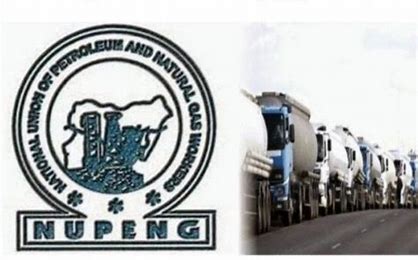News
Cement: Retailers explain why prices are dropping

The cement market, in the last couple of weeks, has seen a significant turnaround with prices tumbling from between N10,000 and N15,000 per 50kg bag to between N7,000 and N8,000.
The sudden rise in the prices of cement and other major building materials in February this year introduced upsets in the construction industry, especially in real estate, where many developers were forced to abandon building sites.
A recent market survey conducted by BusinessDay in different locations across the country confirmed a price drop, ranging between N7,000 and N7,500 per bag, though BUA cement is selling for N7,500 to N7,800 per 50kg bag, depending on location.
Both retailers and major distributors who spoke to BusinessDay explained that the price drop is due to low demand and government’s intervention. At the peak of the price hike, the federal government called a meeting with major producers where it was agreed that a bag of cement should sell for N7,000 to N8,000, depending on location.
But the producers did not comply with this agreement immediately. “Nigerians stopped demanding for cement; many project sites were abandoned as developers sat back and waited for the prices to come down. So, what has happened is an inter-play of demand and supply with price responding which is Economics at work,” Collins Okpala, a cement dealer, told our correspondent in Abuja.
In the Nyanya area of the Federal Capital Territory, a 50-kg bag of Dangote cement now sells for between N7,000 and N7,500, while BUA cement sells for between N8,500 and N9,500, down from between N11,000 and N12,000 respectively.
In Lagos, the product has seen significant price drop too. In Ojo area of the state, Sebastin Ovie, a dealer, told our reporter that what has happened is a crash from the January price, attributing the crash to low demand and stronger naira.
“The current price of the product is between N7,000 and N7,500 per 50kg bag, depending on the brand. This is a significant drop from the average of N12,000 which most dealers were selling in February and March,” he said.
A dealer in Agege area of the state who identified himself as Taofik Olateju, told our reporter that sales are picking up due to the drop in price. He recalled that Nigerians at a point stopped buying due to the high price of the product at N15,000 per bag.
“I am sure most dealers ran at a loss then because we had mainly old stocks which we wanted to offload quickly,” he said, confirming that the product sells for between N7,500 and N8,000, depending on the brand and the demand for the brand.
Continuing, Olateju noted that “because the naira is now doing well against the dollar, it will be unreasonable for manufacturers to continue to sell the product at the old prices. I also believe that the federal government’s intervention and the threat to license more importers may have worked, leading to the reduction in price,” he stressed.
In Enugu, our correspondent reports that the product sells for between N7,200 and N7,500 depending on the brand and location. “This is a city where the price of a 50kg bag went for as high as N12,000 and N13,000 in some cases in February and March,” Samuel Chikwendu said.
He added that the prices of other building materials, especially iron rods, have also dropped considerably which is why, he said, activities are picking up again at construction sites.
The story is slightly different in Owerri, the capital of Imo State, where Innocent Okonkwo told our reporter that low demand was also driving the price drop, adding that a 50kg bag was selling for N9,000 on the average in the state.
Sundry market observers are optimistic of further price reductions, but they remain cautious as manufacturers, wholesalers, and retailers continue to play critical roles in setting prices for end-users.
They lament, however, that despite Nigeria’s status as one of the largest producers of cement in Africa, the price of the product continues to rise, particularly in the face of high inflation impacting the building materials market generally.
Okpala in Abuja highlighted the variations arising from direct sourcing from manufacturers versus procurement through dealers, with traders holding old stocks selling products at prices ranging from N8,500, N8,300 to N8,000 per bag.
Lucy Nwachukwu, another dealer in Abuja, pointed out the significance of procurement volume in determining cement costs, noting that stability in prices has been observed over the past month, with the product retailing for between N7,000 and N7,800 depending on the brand.
Read also: Dangote Cement, Nestle, GTCO, Zenith, MTNN, others hold superior returns -Coronation Research
Kabir Rabiu, the Group Executive Director of BUA Group, in an interview on Aries TV, emphasized the commitment of manufacturers to prioritize the needs of Nigerian consumers, stressing the importance of addressing the role of middlemen in the pricing equation.
It should be noted, however, that the collective efforts of manufacturers, wholesalers, retailers, and governmental bodies remain imperative in ensuring continued affordability and accessibility of cement for all Nigerians.
News
Transporter Frowns At PTD Strike, Says Union Will Force Govt To Use Rail As Mobility Alternative In Lifting Petroleum Products

By Kayode Sanni-Arewa
A prominent transporter in Oyo State and convener of a pressure group, “Know Your Right”, Kehinde Adebeshin a.k.a “Baba Ibeji” has cautioned the Nigeria Union of Petroleum and Natural Gas Workers (NUPENG) and its Branch, the Petroleum Tanker Drivers (PTD) not to force the government of Nigeria to see the Nigerian Railway Corporation (NRC) as a preferred mobility alternative across the country for lifting Petroleum products.
This surprise call came in the wake of industrial action by the PTD in Lagos State to protest the “persistent harassment” of tanker and petroleum product drivers by police officers attached to the Task Force and LASTMA officials in Lagos State.
Although the strike has been called off by the Union’s leadership on Wednesday, February 25, 2025; however Adebeshin decried the ripple effects of the hardship the action of PTD had caused Nigerians since Saturday, February 22, 2024, he described the Union’s decision as an act of economic sabotage. He maintained that it was unfortunate and regrettable that the union flagrantly failed to comply with the existing Lagos e-call-up enforcement which was aimed at regulating truck activities and for maintaining orderliness in the already congested metropolis.
Adebeshin blamed PTD and its parent body, NUPENG’s overzealousness and highhandedness on leadership gap, incompetence, lack of tact and administrative indiscretion. He also expressed disappointment on the implications of the strike on Telecom operators who also raised an alarm over an impending service disruption within Lagos and Ogun states, as diesel supply to their service locations were blocked for three consecutive days when the strike was on.
Adebeshin’s statement on Tuesday reads in parts:
“For lack of tact, competence, administrative discretion, and leadership gaps in operations, the Nigeria Union of Petroleum and Natural Gas Workers (NUPENG) and its Branch, the Petroleum Tanker Drivers (PTD) have openly given opportunity for the government of Nigeria to see the Nigerian Railway Corporation (NRC) as a preferred mobility alternative across the country for lifting Petroleum products and put a total stop to transportation of products through the road.
“The Union must be able to properly measure situations critically before down tooling, unfortunately, NUPENG and PTD have created room for business owners and Nigerians as a whole to label them economic saboteurs who stand the risk of being invited by the DSS. The Union brazenly failed to do its background check whether trucks arrested by Lagos State Task Force and LASTMA officials have not flaunted the existing Lagos e-call-up regulations which was designed to regulate truck activities and for maintaining orderliness in the already congested metropolis. Standing as an encumbrance to the government’s well intentioned program and policy is an affront which should never be tolerated.
“The circular by the Lagos State government to all stakeholders to streamline and regulate truck activities along Lekki-Epe axis of the state, effective March 1, 2025 did not exempt NUPENG or PTD, therefore all violators would be apprehended and made to face the full wrath of the law.
“NUPENG should note that the Nigerian Railway Corporation (NRC), has already collaborated with APM Terminals (APMT) to kick start container traffic service on the standard gauge railway, connecting Lagos to the Moniya Freight Yard in Ibadan. This milestone can be replicated in the downstream sector of the Petroleum industry to enhance Petroleum products lifting and distribution activities, and providing a more efficient and convenient mode of transportation and ultimately help to reduce or put into a total halt, petrol tanker accidents which have claimed many lives and destroyed properties.
“It is good news to hear that NUPENG had eventually swallowed its pride by calling off the 3-day strike, they should engage more in peaceful dialogue with the government of Lagos State in the larger interest of Nigeria so as to foster symbiotic industrial harmony and prosperity. The Union should also try to fix the PTD leadership crisis in the nick of time and give room for people with vision, experience and positive direction to take charge of the PTD Branch and restore its old glory and dignity,” he said.
News
Sad! Midnight f!re engulfs Ladipo, Owode Onirin markets in Lagos

By Kayode Sanni-Arewa
A midnight inferno gutted Ladipo Market in Mushin and Owode Onirin Market along Ikorodu Road, Lagos, destroying goods worth millions of naira.
According to eyewitnesses, the fire broke out at Ladipo Market around 1 a.m., ravaging several shops and warehouses filled with mechanical tools, vehicle spare parts, motorcycles, and household electrical appliances.
Fortunately, no casualties were recorded in either incident, as confirmed by the Lagos State Fire and Rescue Service, which successfully curtailed the fire by 6 a.m.
Director of the Lagos State Fire and Rescue Service, Margaret Adeseye, confirmed that emergency teams from Isolo, Bolade, and Alausa Fire Stations battled the flames at Ladipo Market. Despite challenges in accessing the affected areas, firefighters managed to contain the fire, preventing it from spreading to adjoining properties and businesses.
Meanwhile, another fire erupted at Owode Onirin Market along Ikorodu Road, affecting several shops dealing in metallic materials. Firefighters from the Alausa and Ikorodu Fire Stations responded swiftly, bringing the situation under control by 5 a.m.
Adeseye reassured the public that investigations would determine the cause of both fires once firefighting operations reach the damping-down stage.
“Thankfully, no casualties were recorded in either incident. The causes of the fires will be ascertained as soon as firefighting operations progress to the next stage,” she stated.
News
US dumps UK, others from visa-free entry for 2025

By Kayode Sanni-Arewa
The United States, on Monday, released the list of eligible countries for its 2025 Visa Waiver Programme.
The United Kingdom was excluded from the programme but remains eligible under specific conditions.
The list also does not include any African countries, such as Nigeria, Ghana, or South Africa.
While most of the VWP list remains unchanged, the addition of Romania marks a significant update. The US has also focused on enhancing security checks and prioritising countries with strong diplomatic ties and border security standards.
According to the US Bureau of Consular Affairs website, the Visa Waiver Programme allows most citizens or nationals of participating countries to travel to the United States for tourism or business for up to 90 days without obtaining a visa.
The agency stated, “Travellers must have a valid Electronic System for Travel Authorization (ESTA) approval prior to travel and meet all requirements explained below. If you prefer to have a visa in your passport, you may still apply for a visitor visa.”
The new Visa Waiver Programme for 2025 introduces policy updates on permit eligibility and revisions to the list of participating countries, as well as new travel policies.
This update simplifies visa-free entry into the United States for millions worldwide, making business, tourism, and transit travel more accessible.
The 2025 Visa Waiver Programme includes 40 countries whose citizens can now travel to the United States without a visa.
See the full list below:
1. Andorra,
2. Australia,
3. Austria,
4. Belgium,
5. Chile,
6. Czech Republic,
7. Croatia,
8. Denmark,
9. Estonia,
10. Finland,
11. France,
12. Germany,
13. Greece,
14. Hungary,
15. Iceland,
Nigeria needs data centres to meet digital demand – Geniserve
16. Ireland,
17. Italy,
18. Israel
19. Norway,
20. Poland,
21. Portugal,
22. San Marino,
23. Singapore,
24. Slovakia,
25. Japan,
26. Slovenia,
27. Latvia,
28. South Korea,
29. Liechtenstein,
30. Spain,
31. Lithuania,
32. Sweden,
33. Luxembourg,
34. Switzerland,
35. Malta,
36. Netherlands,
37. New Zealand,
38. Qatar,
39. Romania
40. Monaco
-

 Metro11 hours ago
Metro11 hours agoGunmen attack Edo farming communities kill dozens, destroy properties
-

 Metro11 hours ago
Metro11 hours agoMan takes girlfriend’s life while beating her
-

 News20 hours ago
News20 hours agoIt’s Awful For Akpabio To Humiliate Female Senators, Kingibe, Natasha;– Ex-Minister Ezekwesili
-

 News7 hours ago
News7 hours agoSEE Black Market Dollar To Naira Exchange Rate Today 26th February 2025
-

 News23 hours ago
News23 hours agoAiyedatiwa sworn in as Ondo State Governor
-

 News11 hours ago
News11 hours agoIBB in his controversial book narrates how he met his wife, Maryam
-

 News7 hours ago
News7 hours agoJust in: David Setonji May Become New LSHA Speaker Meranda To Step Down
-

 News20 hours ago
News20 hours agoDelta North: Court asked to declare Ned Nwoko’s seat vacant over illegal defection







